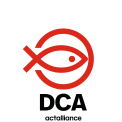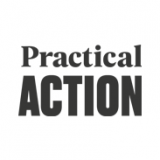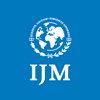- Background Information
1.1 About International Justice Mission
International Justice Mission (IJM) is a global organization that protects people in poverty from violence. IJM partners with local authorities to combat slavery, violence against women and children, police abuse of power and other forms of abuse against people who are poor. IJM works to rescue and restore victims, hold perpetrators accountable, and help strengthen public justice systems.
Started in 2001, IJM’s office in Kenya works to combat police abuse of power against people who are poor, as well as Violence Against Women and Children. IJM’s focus is to ensure the well-being of the families affected by this crime, the swift conviction of all perpetrators involved, and strengthening of public justice system. Since its inception, IJM Kenya has established partnerships with key public justice actors such as the Office of the Director of Public Prosecutions (ODPP), National Police Service Commission (NPSC), Independent Policing Oversight Authority (IPOA), Internal Affairs Unit (IAU), National Council on Administrative Justice (NCAJ), Missing Voices Coalition, among others.
1.2 Police Abuse of Power (PAP) Program
IJM Kenya has been combating Police Abuse of Power (PAP) through Collaborative casework and targeted system reform interventions within the law enforcement, legal and aftercare sectors. The PAP Program is informed by the prevalence of high cases of police misconduct which was reported at 46.2% in 2019[1] and its design has been based on the theory of change that strong justice systems contribute to lower prevalence of crime against people who are poor and improved victim outcomes. In the current phase (2023-2029), PAP Program’s overarching goal is to protect 35 million Kenyans from Police Abuse of Power (PAP) through a strengthened, accountable, professional, and responsive Criminal Justice System. It pursues this goal through 3 outcomes namely: National Police Service that is accountable, professional, and effectively responds to police misconduct; Community members rely on the criminal justice system to protect them from police misconduct; And criminal justice system actors hold police accountable for misconduct through effective prosecution. The PAP program is being implemented using IJM’s Protection Model comprising interventions spread across IJM’s six dimensions namely Casework, Capacity Development, Data Management, Survivor Leadership, Community Engagement, and Advocacy.
- Problem Statement
Over the years, the Kenyan police have been the subject of sharp criticism for excessive use of force, impunity and a general disregard for democratic ideals and citizen rights. The problem of impunity and lack of accountability in policing has become even more pronounced and cyclic during every election. Although constitutional institutions exist that deal with police abuse of power, local police accountability mechanisms also play an important role in this regard. Justice Centres play a pivotal role in advancing police accountability through various mechanisms. They provide legal assistance to victims of police abuse, advocate for systemic reforms, and engage in community outreaches to raise awareness on rights and legal processes.
Studies have shown that legal aid services are crucial in empowering individuals to seek redress for grievances and hold authorities accountable (Amnesty International, 2016[2]; Legal Resources Foundation, 2019[3]). For instance, in South Africa, Justice Centres have been instrumental in documenting cases of police brutality and providing legal representation, which has led to several successful prosecutions and reforms (Bruce, 2014; Newham, 2015)[4]. Despite these successes, gaps remain in understanding the broader impact of these centres on systemic police accountability. Few studies explore community perceptions of Justice Centres and their effectiveness in addressing police misconduct. There is also limited research on the long-term sustainability of the interventions and the extent to which they lead to required changes in police behaviour and institutional reforms.
However, there is limited empirical evidence on the specific contributions of these centres towards enhancing police accountability. Understanding their role and effectiveness is crucial in informing future strategies and policies aimed at strengthening justice systems at all levels.
- The Purpose of the study
The purpose of this study is to explore and understand the role of Social Justice Centres in promoting policing accountability in Kenya. It aims at uncovering the strategies, mechanisms, and outcomes of Justice Centres’ efforts in enhancing police accountability within the country. The study seeks to provide insights that can inform policy and practice in promoting policing accountability and improve the effectiveness of Justice Centres.
3.1 Objectives of the study
- To investigate the role of Justice Centres and associated Human Right Defenders (HRDs) on local policing accountability
- Establish the nature (strengths, weaknesses, gaps etc) of ongoing relationships between social justice centres, local communities and existing police accountability structures
- Identify key impediments and enablers to justice at community level
- Establish hinderances to local policing accountability within the context of JCs operations
3.2 Study Questions
- What is the role of Justice Centres and the associated Human Right Defenders (HRDs) on local policing accountability?
- What is the nature (strengths, weaknesses, gaps etc) of ongoing relationships between Social Justice Centres, local communities and existing police accountability structures?
- What are the key impediments and enablers to justice at community level?
- What are the hinderances to local policing accountability within the context of JCs operations?
- Methodology
The study will adopt a non-experimental research design. The study team is expected to propose appropriate methodology and analysis tools that guarantee the highest degree of rigor to ensure credible findings and recommendations. The methodology should highlight data collection methods/approaches, detailed study questions, data collection tools, sample population, sampling criteria and sampling frames, data collection team-training plan, data collection schedule, data management and analysis plans, ethical considerations and data quality assurance measures. The study will target Justice centres situated in Nairobi, Kiambu, Nakuru, Kisumu and Mombasa counties.
- Roles and responsibilities
5.1 IJM Kenya
IJM will collaborate with the selected consulting firm(s) to undertake the following roles:
- Provide consultant(s) with background documents, reports, and available secondary data for review.
- Support communities and stakeholders’ sensitization and mobilization.
- Provide oversight on the entire study while retaining objectivity.
- Review and provide input on the consultant’s deliverables.
- Organize validation and dissemination workshops for the presentation of study findings to the stakeholders.
- Review draft reports/ final research products and provide consultant with feedback.
- Ensure smooth flow of consultancy engagement processes including contractual obligations.
- Share the final study report and other research products with all key stakeholders.
5.2 Consulting/Research Firm
The roles of the consultant(s) shall include the following:
- Conduct desk‐review of relevant program documents and other secondary sources.
- Develop inception report.
- Develop study protocol, detailing the agreed upon study design, methodology, indicators, data-gathering tools, work plan schedule, etc.
- Develop the sample frame for the study
- Develop and review data gathering tools in consultation with IJM.
- Seek ethical approval from agreed IRB and research authorization from NACOSTI for the study alongside other administrative approvals.
- Develop a detailed plan and coordinate data collection processes.
- Undertake recruitment and training of the data collection teams including piloting, pre‐testing, and finalization of data collection tools.
- Provide ongoing support to study team members to fulfil their obligations
- Review, clean, safely store, and analyse data collected.
- Submit data collected from the study to IJM.
- Write one study report as per agreed template.
- Present preliminary findings and draft report to program stakeholders for validation.
- Incorporate feedback from program stakeholders and submit the final study report together with all data files (raw and cleaned; audio and written) and presentation/dissemination products.
- Key Deliverables
Key deliverables for the study will include the following:
- Inception Report The inception report will detail study purpose and objectives, methodology, logistics and work plan. The consultant will develop and share an inception report based on the template and guidance provided by IJM Kenya.
- Study protocol and data collection tools to be submitted for the IRB approvals.
- Ethical and Research approval of the study: The consulting team will work closely with IJM to acquire ethical and research approvals from relevant IRB and NACOSTI respectively before field work commences.
- Draft and Final study reports: The study reports (both draft and final) will be based on the outcomes of the field processes and outputs of qualitative and quantitative data analysis. The report is the primary product used to communicate findings to the key program audiences. The report will be done based on the template and outline provided by IJM Kenya covering such key components including executive summary, background, methodology, limitations, findings, lessons learned, conclusions/recommendations, references, and appendices.
- PowerPoint Presentation: After receipt of an acceptable draft report, the consultants must disseminate the study findings to stakeholders for their input and feedback during the study validation workshop**.** The final report will thereafter be adapted after necessary reviews have been completed and presented for IJM and stakeholders’ feedback and validation.
- Popular version of the study report: A summary of the study report not exceeding 20 pages, excluding any potentially procurement-sensitive information shall be submitted (also electronically, in English) for dissemination among partners and stakeholders.
- Other study products to hand over to IJM Kenya at the end of the assignment shall include completed data collection and analysis plans; completed training modules/resources; completed data collection tools; submitted raw and cleaned data sets for both quantitative (in SPSS format along with the dictionary of the variables) and qualitative data together with analysis outputs.
- Study Timeframe
This study will be conducted between October and November 2024 and is expected to take a maximum of 60 days. The consultant(s) bidding for the assignment should give a clear workplan of how the study will be undertaken within the stipulated timeframe.
- Reporting and Supervision
The successful consultant (or team of consultants) will work under the supervision of the Senior MERL Manager-Kenya Program, but with close consultations with any other IJM staff deemed necessary.
- Qualifications and Experience
The prospective consultant/firm is expected to demonstrate a fulfilment of the following minimum qualifications:
- Demonstrable, thorough knowledge of the Kenyan criminal justice system. This should include a good knowledge of the functions of the National Police Service, the Office of the Director of Public Prosecutions and the Judiciary.
- Good understanding of the work of Social Justice Centres.
- Good mastery and experience of conducting evaluations and research studies within the governance and justice sectors in Kenya.
- Vast experience in developing research protocols and obtaining ethical approvals from the IRBs.
- Excellent team management capacity, including appropriately qualified staff with the technical skills to execute research and evaluations.
- At least a master’s degree (especially for the lead) in relevant discipline such as law, public policy, governance, human rights, or any other relevant field.
- Minimum of 2 years of demonstrated experience in conducting similar program research studies or evaluations. The application should include reports from 2 sample assignments conducted in the last 3- 5 years together with their references.
- Strong analytical, report writing and presentation skills.
9.1 Application Requirements
Bids should include the following:
- A letter of interest.
- A technical proposal (maximum of 15 pages) summarizes the consultant’s interpretation of the RFP and properly outlined methodology. The proposal should also have a detailed timeline and activity schedule for implementation of the assignment. If a team is being proposed, the technical proposal should summarize the team composition, their technical capacities, and responsibilities of each member.
- A copy of curriculum vitae (CV) of the lead consultant (and core team members, particularly the lead Subject Matter Experts) which should outline their qualifications and relevant experience with respect to this assignment.
- A financial proposal with a detailed breakdown of budget lines and costs (in Kenyan shillings) for conducting the study, including:
- Itemized Consultancy fees/costs
- Itemized field related and overhead expenses
- Three sample reports from similar assignments, conducted in the last 5 years with 3 clear referees (names and contacts) from those assignments.
- Up to date Certificate of Tax compliance
[1]IPOA 2019: Endline survey on policing standards and gaps in Kenya
[2] Amnesty International. (2016). Legal Aid and Police Accountability: A Global Perspective
[3] Legal Resources Foundation. (2019). Justice Centres’ Impact on Police Reform. Legal Resources Foundation.
[4] Bruce, D. (2014). Civilian Oversight and Police Accountability in South Africa. Institute for Security Studies.
Potential conflicts of interest should be declared.
Interested candidates are advised to send their bids via email to:[email protected] and copy [email protected] with the subject line entitled “ Collaborative Learning Agenda study”. The applications must be received by COB September 20, 2024. Only shortlisted candidates will be contacted. Any form of canvassing will lead to disqualification from the bid.
All enquires in relation to the RFP should be submitted through the same email addresses ([email protected] and copy [email protected]) before or by September 19, 2024.
IJM is an equal opportunity employer.
IJM holds strict safeguarding principles and a zero tolerance to violations of the Safeguarding Policy, Protection against Sexual Exploitation, Abuse and Harassment Policy and Code of Conduct. Parallel to technical competence, recruitment, selection and hiring decisions will give due emphasis to assessing the candidates value congruence and thorough background, police clearance and reference check processes.





